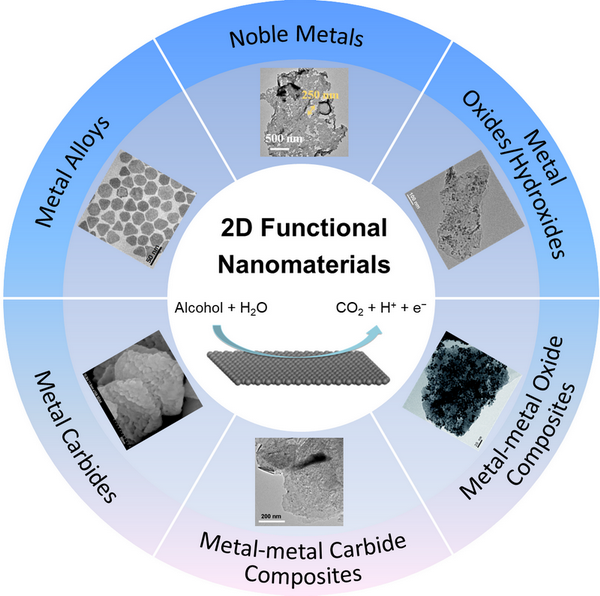祝贺19级赵逊同学在Chem. Eng. J.上发表文章
Xun Zhao, Qiming Liu, Qiaoxia Li, Lingyun Chen*, Lei Mao, Huayu Wang, Shaowei Chen*. Two-dimensional Electrocatalysts for Alcohol Oxidation: A Critical Review. Chem. Eng. J. 2020, 400, 125744. (2019IF: 10.652)
https://doi.org/10.1016/j.cej.2020.125744
Abstract
Direct alcohol fuel cell (DAFC) exhibits multiple unique advantages, such as high energy conversion efficiency, low cost, ready availability of fuels, minimal environmental pollution, and ease of operation, and has found diverse applications as a small, micro mobile power supply. A critical challenge for the development of DAFC is the design and engineering of effective anode catalysts, where electrooxidation of alcohols occurs. Within this context, two-dimensional (2D) electrocatalysts represent a viable option, due to their unique materials properties, such as large surface area, ease of charge migration and mass transfer, and mechanical robustness during electrochemical reactions. In this review, we summarize recent breakthroughs in the structural engineering of a range of 2D functional nanomaterials, including noble metals and alloys, metal oxide(hydroxide) and carbide, and their nanocomposites, in the electrocatalytic oxidation of alcohols (primarily methanol and ethanol), within the context of reaction mechanisms, and include a perspective highlighting the promises and challenges in future research.
